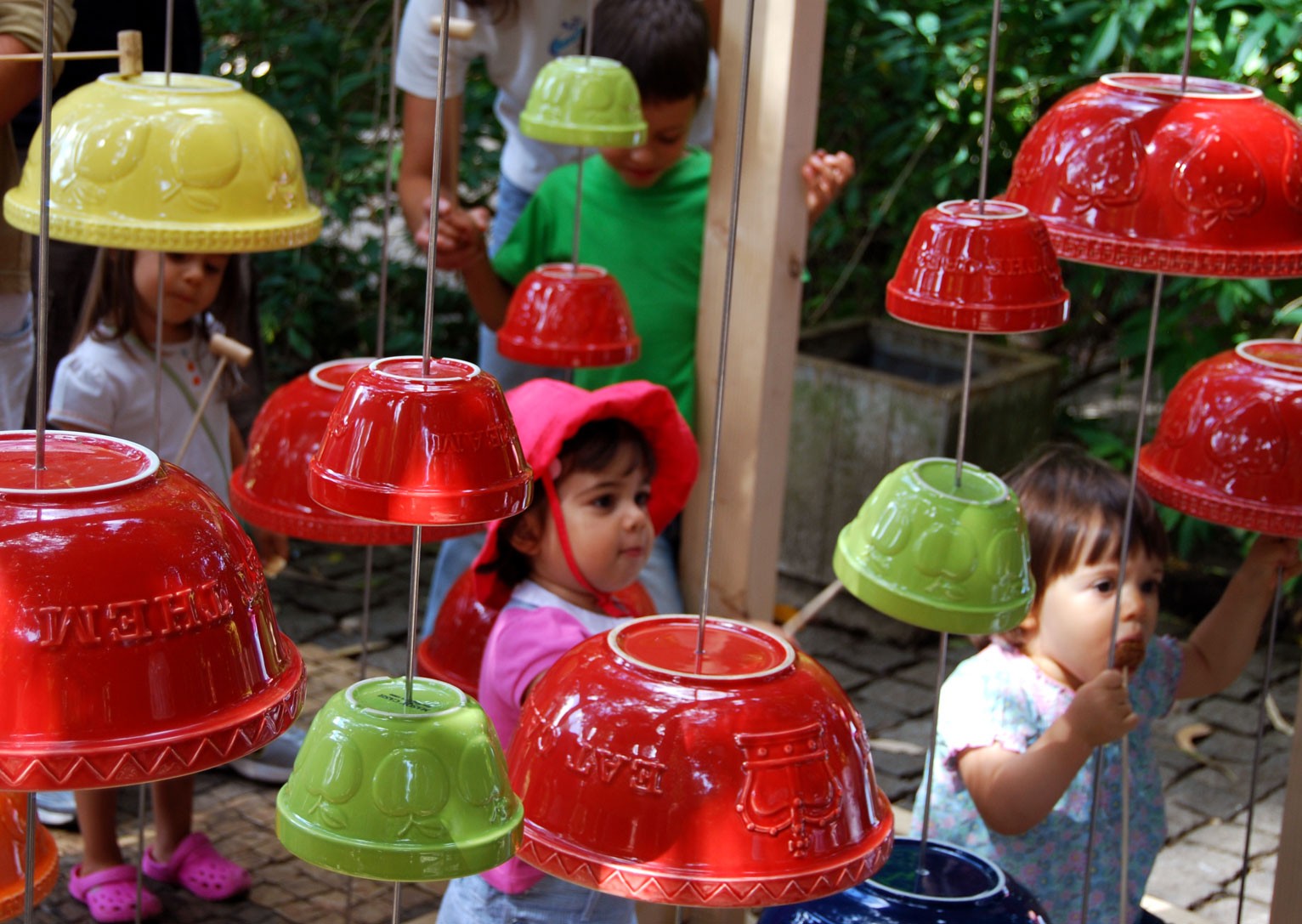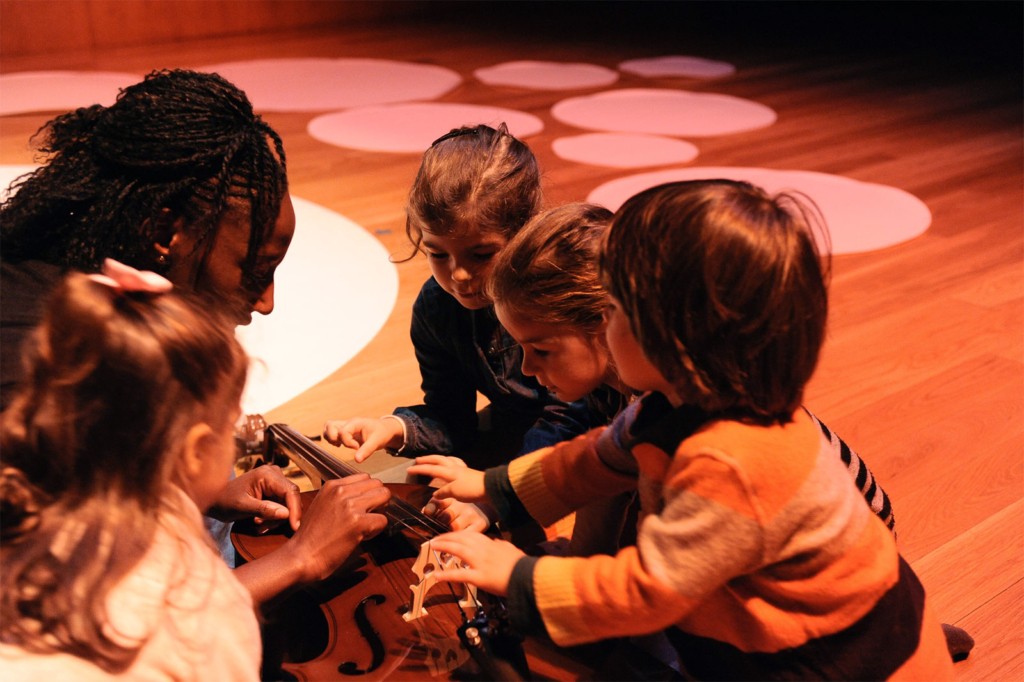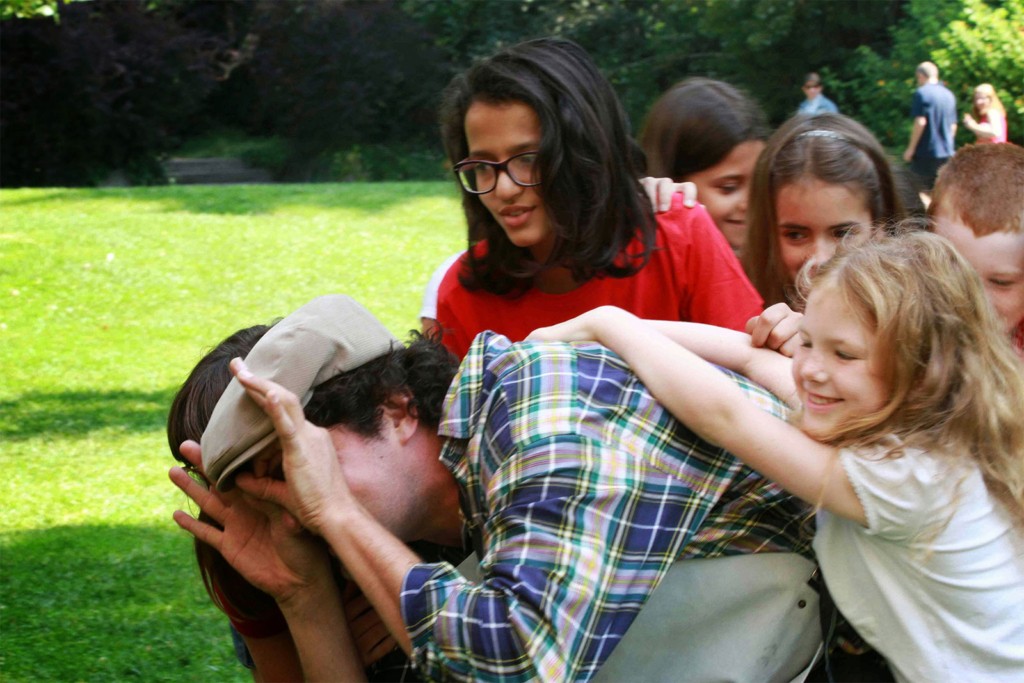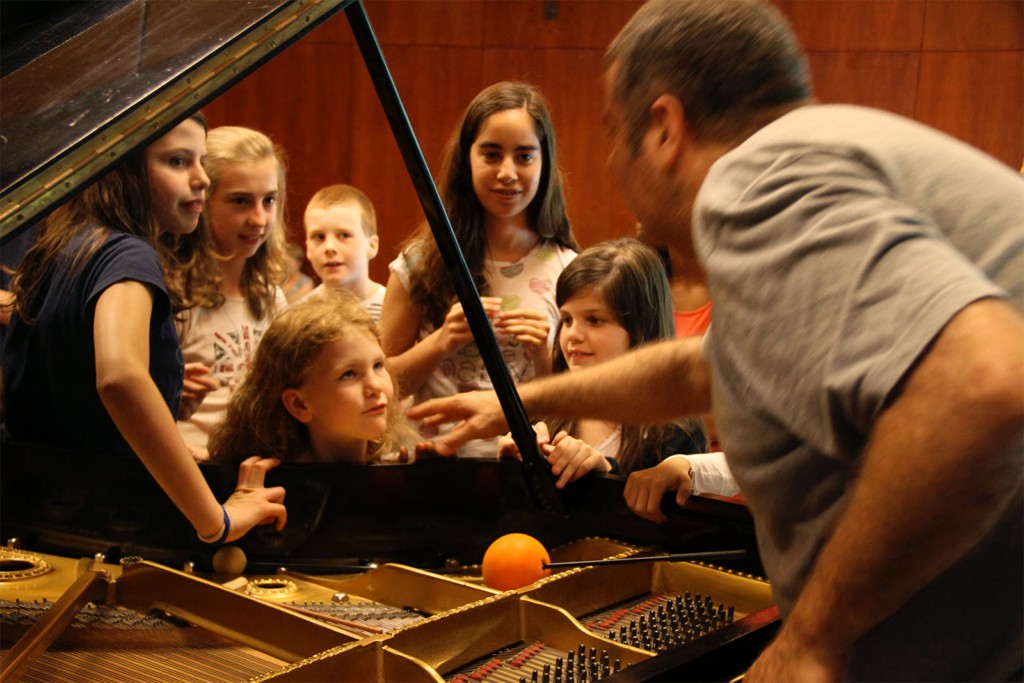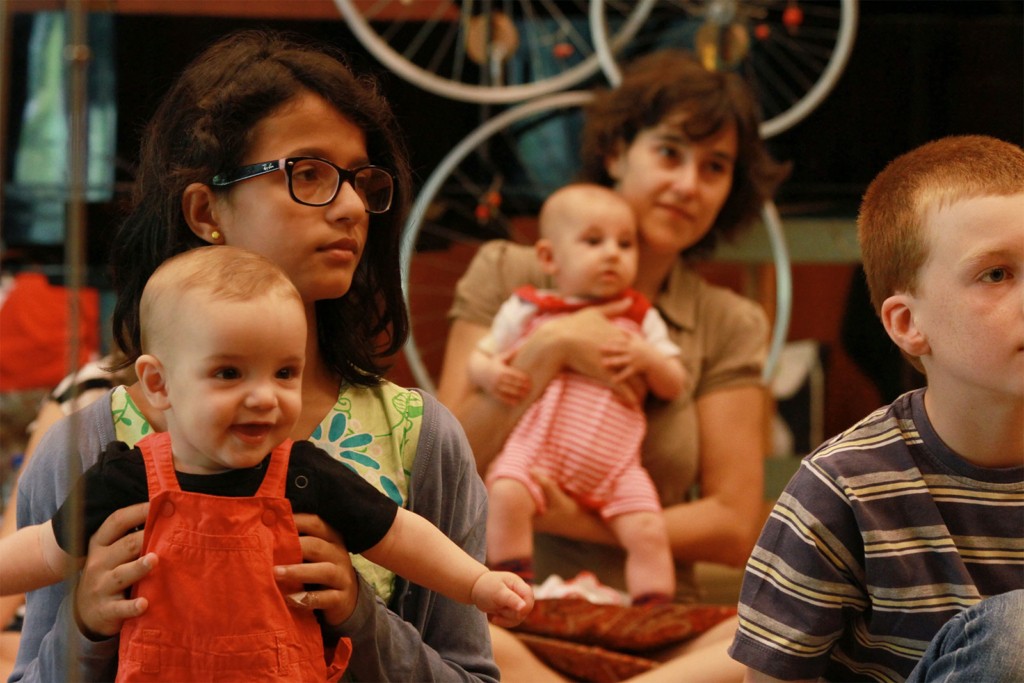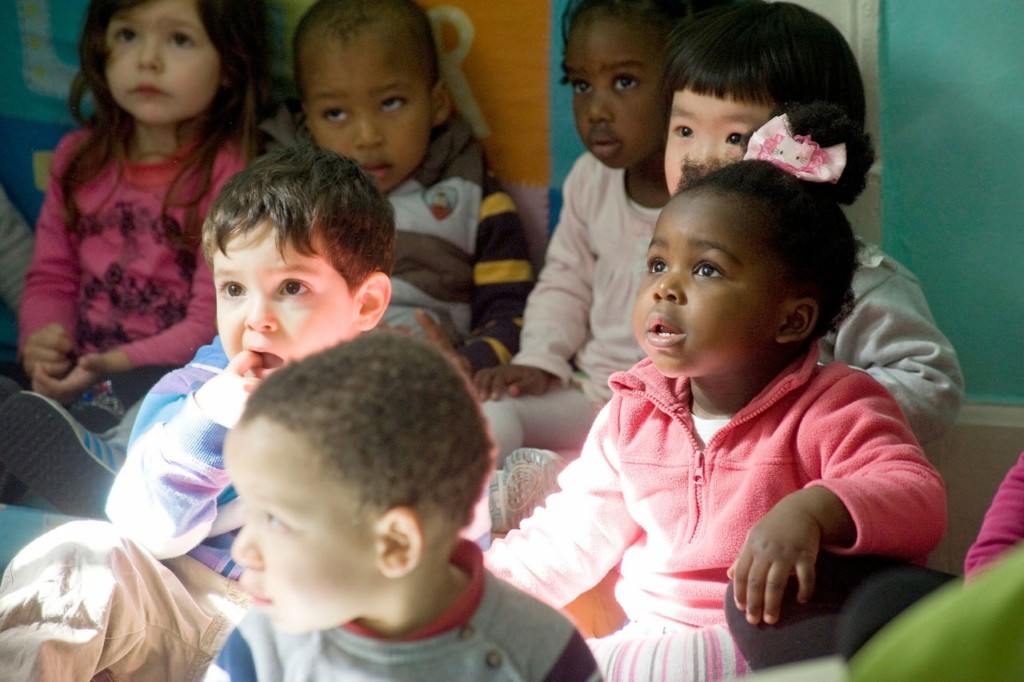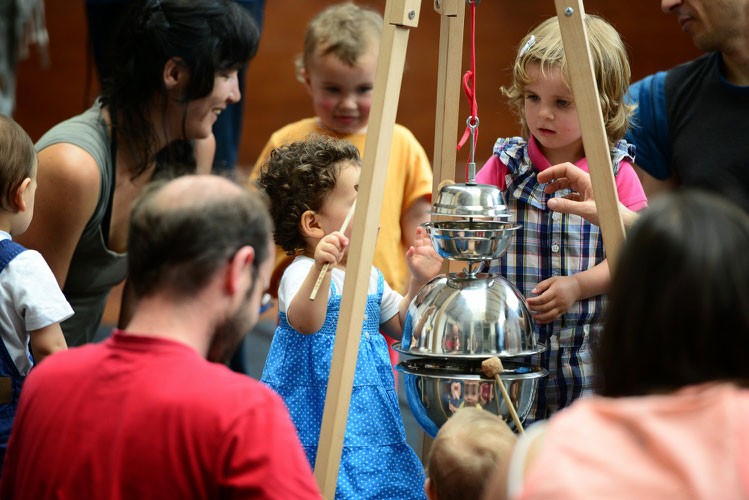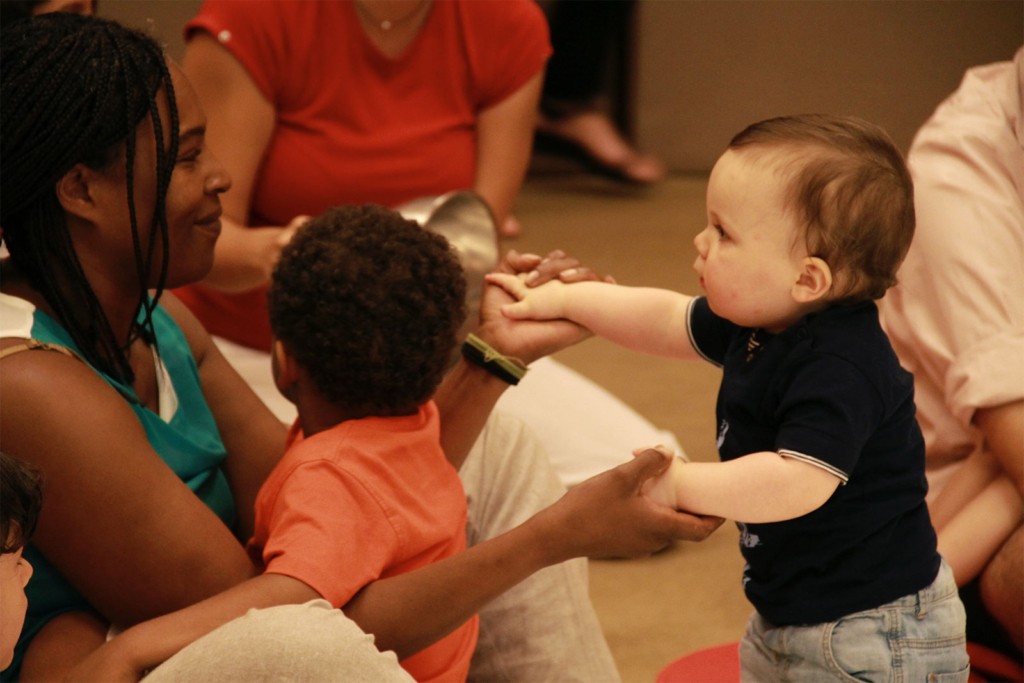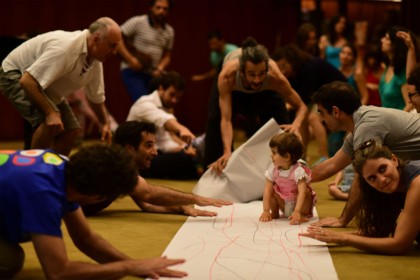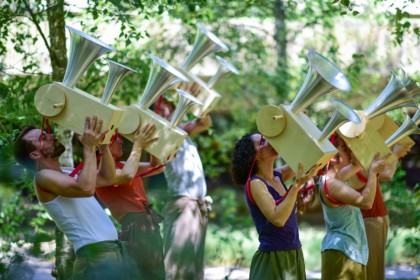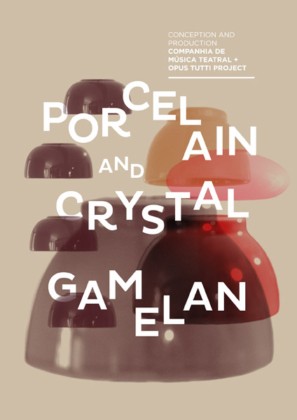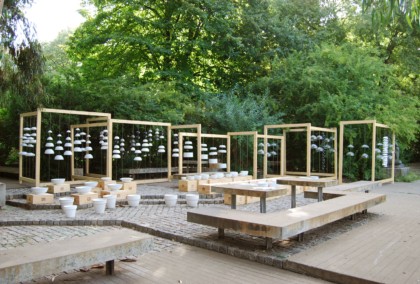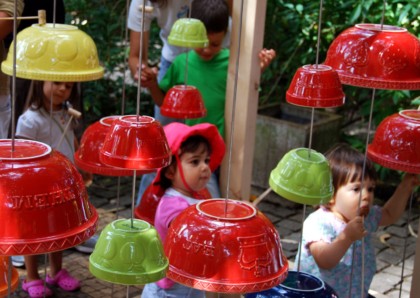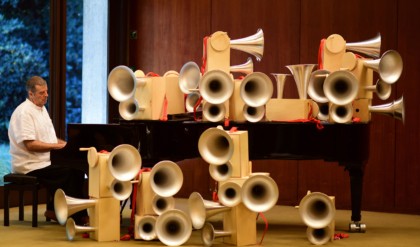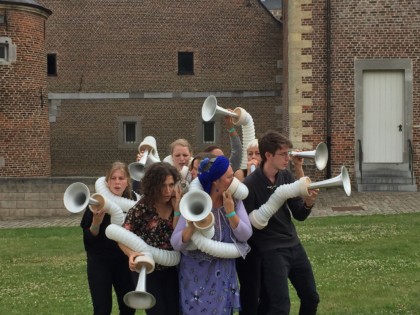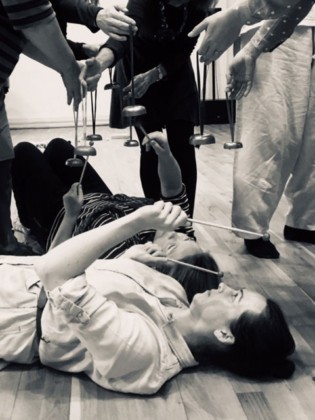The Opus Tutti project was an initiative by CMT and LAMCI, funded by the Fundação Gulbenkian education service. The project aimed to create methods to improve integrated human development through early years arts.
Taking a broad approach to conceiving and experimenting with models of community intervention, promoting discussion and reflection, developing good practice to recommend to educational and community representatives, artists and educators, creating innovative artistic experiences and developing artistic discourses based on the principle of sharing artistic languages and creative processes, offering real opportunities for community involvement and acting in a specific context in a systemic way—these were just some aspects of the project.
Opus Tutti was developed between 2011 and 2014 in four phases: Germinate, Take Root, Grow, Bear Fruit, each name evoking a phase in the process of organic development, helping to communicate the idea of the project, that is, a process of development with sequential phases and a sense of direction, but also with an organic nature that can react and adapt to circumstances, outcomes and people. The project was neither purely academic nor solely educational, artistic or social. It involved elements and approaches from all these areas, and it was not just a project for children. In fact, over time, the project became truly intergenerational. The systemic approach was very important, and this is one of the reasons why an early years project included initiatives aimed at adults and older children.
With that theoretical model in mind, the children were regarded as individuals belonging to different systems — the nuclear family, the extended family, and nursery care settings — that also relate to community systems. So initiatives were aimed at the children themselves but also included other people to extend the work to other parts of the system and have indirect benefits.
Some of the most important Opus Tutti initiatives were the workshops Ludofónica Experimental, Afinação do Olhar, Afinação do Ouvir, Afinação do Brincar, Brincar a Compor, which were the basis for the creation of the participatory performances Um Plácido Domingo1), Babelim and Jardim Interior, and the creative residencies and Arte da Lúdica training, which was the starting point for Peça a Peça Itinerante (PaPI), a set of small music-theatre pieces designed to travel to creches and kindergartens. Pilot studies were carried out at Centro Infantil Roseiral, which provided an experimental home for the development of ideas for the Opus Tutti project. The Roseiral community took part in various project initiatives and hosted Creche & Apareche, weekly music sessions based on the principles of E. Gordon’s Theory of Music Learning, the experience of LAMCI and CMT and the ideas and materials that were developed in workshops, creative residencies, training activities and Opus Tutti’s creative practices. The project made it possible to create the International Colloquium for Arts for Childhood and Social and Human Development, an initiative that has become one of CMT’s regular activities. At the end of Opus Tutti results and reflections on the project were presented in the form of an interactive exhibition called “Inventário dos Frutos” and gave rise to the publications Ecos de Opus Tutti and Manual Para a Construção de Jardins Interiores, published by Fundação Calouste Gulbenkian.
